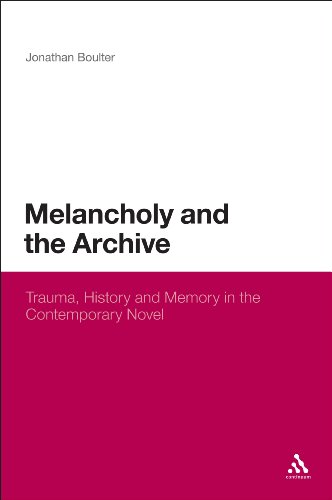

Most ebook files are in PDF format, so you can easily read them using various software such as Foxit Reader or directly on the Google Chrome browser.
Some ebook files are released by publishers in other formats such as .awz, .mobi, .epub, .fb2, etc. You may need to install specific software to read these formats on mobile/PC, such as Calibre.
Please read the tutorial at this link. https://ebooknice.com/page/post?id=faq
We offer FREE conversion to the popular formats you request; however, this may take some time. Therefore, right after payment, please email us, and we will try to provide the service as quickly as possible.
For some exceptional file formats or broken links (if any), please refrain from opening any disputes. Instead, email us first, and we will try to assist within a maximum of 6 hours.
EbookNice Team

Status:
Available4.4
16 reviews
ISBN-10 : 1441124128
ISBN-13 : 9781441124128
Author: Jonathan Boulter
Melancholy and the Archive examines how trauma, history and memory are represented in key works of major contemporary writers such as David Mitchell, Paul Auster, Haruki Murakami and Jose Saramago. The book explores how these authors construct crucial relationships between sites of memory-the archive becomes a central trope here-and the self that has been subjected to various traumas, various losses. The archive-be it a bureaucratic office (Saramago), an underground bunker (Auster), a geographical space or landscape (Mitchell) or even a hole (Murakami)-becomes the means by which the self attempts to preserve and conserve his or her sense of history even as the economy of trauma threatens to erase the grounds of such preservation: as the subject or self is threatened so the archive becomes a festishized site wherein history is housed, accommodated, created, even fabricated. The archive, in Freudian terms, becomes a space of melancholy precisely as the subject preserves not only a personal history or a culture's history, but also the history of the traumas that necessitates the creation of the archive as such.
Chapter 1. Archiving Trauma: Paul Auster
Chapter 2. Burying History: Haruki Murakami
Chapter 3. Humanizing History: David Mitchell
Chapter 4. Archiving Melancholy: José Saramago
melancholy and the infinite sadness album
melancholy archangel
melancholy and the infinite sadness art
melancholy and the infinite sadness artwork
melancholy art
Tags: Melancholy, the Archive, Trauma, History, Memory, the Contemporary Novel, Jonathan Boulter